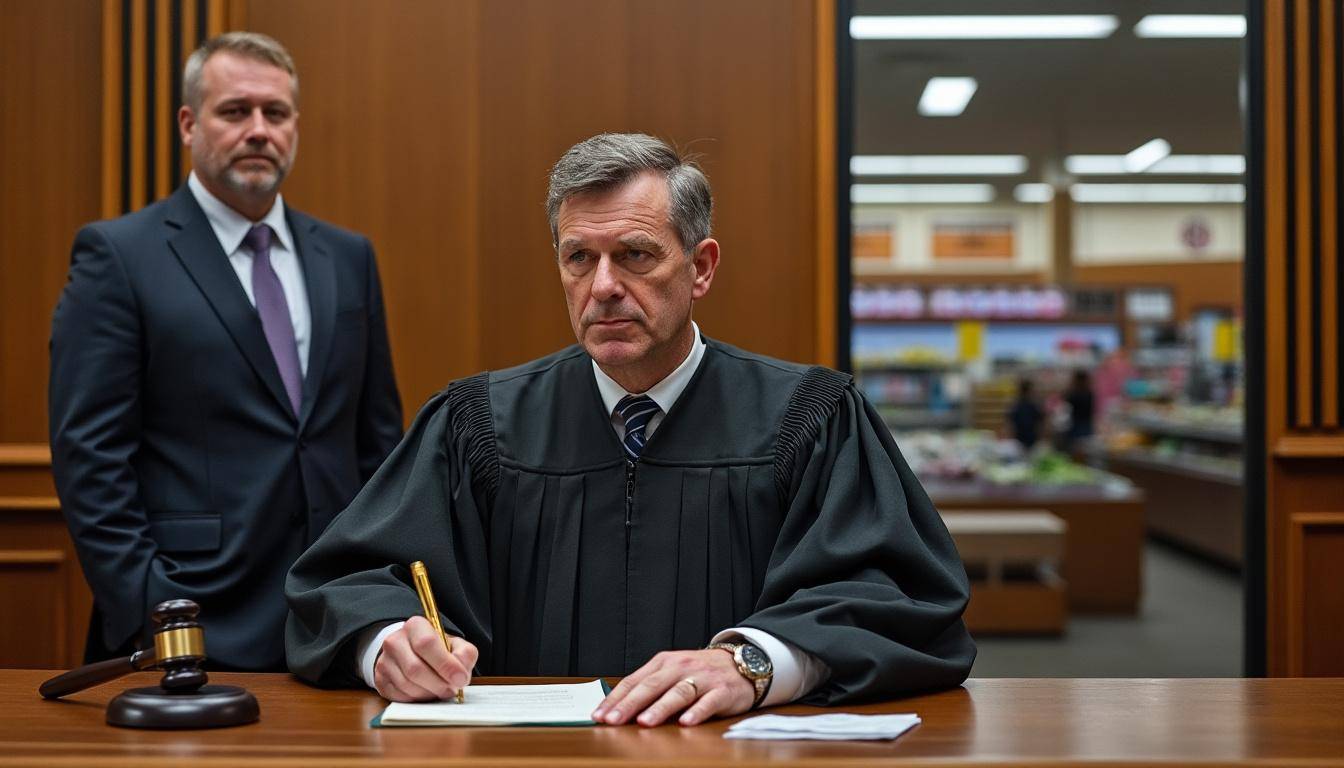In a significant ruling, the British Columbia Court of Appeal has upheld the dismissal of a personal injury claim arising from a slip and fall at a grocery store in North Vancouver. This decision underscores the critical importance of maintaining detailed and credible evidence when pursuing injury claims under BC’s Occupiers Liability Act, 1996. The case reveals the complexities claimants face, especially concerning proving liability and the integrity of a store’s maintenance systems.
British Columbia Court of Appeal’s stance on injury claims from slip and fall accidents in grocery stores
Slip and fall accidents often lead to legal disputes over personal injury compensation and liability. The recent appeal in Rahnama v. Loblaws City Market, 2025 BCCA 176 demonstrates the Court’s rigorous approach to evaluating whether stores fulfill their duty of care to patrons under the Occupiers Liability Act. In this instance, the appellant’s claim, filed after an incident in January 2018, was summarily dismissed based on evidence that the grocery store maintained a reasonable system for inspection and cleaning.
- The store implemented a structured sweep and inspection log procedure, requiring half-hourly inspections and hourly sweep logs.
- Employees received comprehensive training on safety and housekeeping, reinforced by written handbooks.
- Evidence included first aid intervention details and incident reports related to the fall.
Despite these measures, the appellant challenged the reliability of the store’s maintenance records and the absence of video surveillance as critical evidence. Yet, the Court of Appeal found no merit in the argument that the lack of video warranted adverse inferences against the store’s liability.
Legal nuances behind liability and evidentiary requirements in slip and fall claims
The appeal court’s judgment carefully balances the claimant’s right to seek compensation with the need to substantiate claims through credible evidence. Key legal points highlighted include:
- The store’s duty to maintain safe premises, demonstrated through documented routine inspections and cleaning schedules.
- The criteria for drawing adverse inferences due to evidence inadequacy or spoliation, which were not met here.
- The recognition that routine overwriting of video footage, a standard business practice, does not imply intentional evidence destruction.
The appellant’s reliance on precedent, such as Thomasson v. Moeller, 2016 BCCA 14, to support drawing negative inferences from missing video evidence was rejected because the video’s relevance and coverage were uncertain. This precedent underlines that courts require clear proof of intentional evidence suppression before penalizing a party.
For individuals navigating personal injury claims, understanding these evidentiary thresholds is crucial. Engaging a knowledgeable injury lawyer early on can provide invaluable guidance on evidence gathering and claim strategy.
Insights into the interplay of insurance, compensation, and legal principles in injury claims
Slip and fall claims frequently involve complex considerations surrounding insurance coverage and valuation of damages. The dismissal of this claim by British Columbia’s Court of Appeal signals that insurers and courts scrutinize the claimant’s ability to demonstrate negligence or breach of duty by the occupier.
- The store’s adherence to documented safety protocols typically mitigates liability exposure.
- Compensation claims hinge on proving that hazards were unreasonably disregarded or that the occupier failed to fulfill statutory obligations.
- Delayed or insufficient evidence submissions can weaken claims and lead to summary dismissals.
In this case, the appellant had opportunities over two years following the incident to obtain witness statements and video evidence but did not capitalize on these. The decision emphasizes the necessity for timely and comprehensive evidence collection to support personal injury claims effectively.
Victims of workplace or public space injuries should familiarize themselves with the legal framework for accident injury law and insurance claims to safeguard their interests.
Practical steps for individuals considering injury claims for slip and fall accidents in British Columbia
When faced with injuries from falls in commercial premises, several practical measures can strengthen your claim and enhance your chances of just compensation:
- Document the scene promptly: Photograph hazards, collect witness contacts, and record the incident details immediately.
- Seek medical evaluation: Ensure all injuries are professionally assessed and recorded to substantiate your damages.
- Preserve evidence: Request store surveillance footage quickly and follow up persistently.
- Consult an experienced injury lawyer: Expert legal advice can help interpret liability under the Occupiers Liability Act and assist in pursuing appropriate compensation.
- Understand insurance processes: Engage with your insurer and the store’s insurer to clarify coverage and claims steps.
For victims unfamiliar with the nuances of personal injury law and court procedures, early professional intervention is often the difference between a successful claim and a rejected one.
Essential FAQ on slip and fall injury claims and legal recourse in British Columbia
- What types of evidence are crucial in a slip and fall injury claim?
Photographs of the hazard, maintenance logs, witness statements, medical records, and surveillance footage when available are vital to support your claim. - Can a store be held liable if there was no video recording of the incident?
Video footage can help but is not essential. The store’s documented maintenance system and other evidence play a significant role in establishing liability or its absence. - How soon should I act after a slip and fall accident?
Swift action is critical: collect evidence immediately, seek medical attention, and contact a personal injury lawyer without delay to ensure legal deadlines are met. - What damages can be compensated in such claims?
Victims may claim compensation for pain and suffering, lost wages, medical expenses, and in certain cases, future earning losses. - Is it necessary to hire a lawyer to pursue a personal injury claim?
While not mandatory, expert legal representation significantly improves claim outcomes by ensuring all legal requirements and deadlines are properly addressed.
Those seeking further knowledge on personal injury litigation can explore detailed resources at courtinjury.com, a comprehensive portal offering legal guidance and support for injury claimants across Canada.
